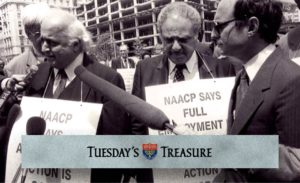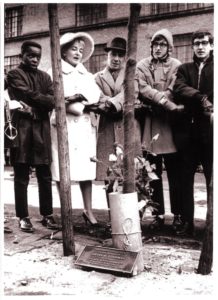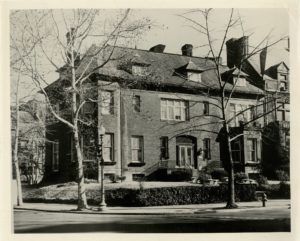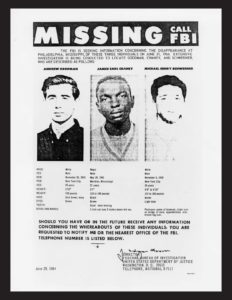THE RELIGIOUS ACTION CENTER AND THE VOTING RIGHTS ACT OF 1965
The Voting Rights Act was signed into law by President Lyndon B. Johnson in 1965. It abrogated poll taxes, literacy tests, and other bureaucratic restrictions which had been implemented to deny African Americans and other minorities the right to vote. The murder of three voting rights activists—Andrew Goodman, Michael Schwerner, and James Chaney—in Mississippi in 1964 and the violence against peaceful demonstrators in Selma, AL in early 1965 gained national attention and initiated meaningful change vis-à-vis voting rights legislation. The Voting Rights Act was drafted in the conference room of the Religious Action Center (RAC), which educates and mobilizes the Reform Jewish community on legislative and social concerns of Reform Judaism. Located in Washington D.C. and opened in 1962, the building also housed the Leadership Conference on Civil Rights, an organization founded in 1950 in part by Arnold Aronson of the National Jewish Community Relations Advisory Council and made up of numerous civil and human rights organizations including the Anti-Defamation League (ADL). Following the passing of the Act, there was significant growth in African American voter registration and in the number of African Americans elected to public office.

Reform rabbis Alexander Schindler and David Saperstein with civil rights leader Benjamin Hooks at an affirmative action rally in the 1960s. American Jewish Archives, Cincinnati, Ohio.

The parents and siblings of Andrew Goodman, the civil rights worker killed in Mississippi in 1964, at a tree-planting ceremony with students of the Walden School from which Andrew graduated, February 1965. PC-1562. American Jewish Archives, Cincinnati, Ohio.



